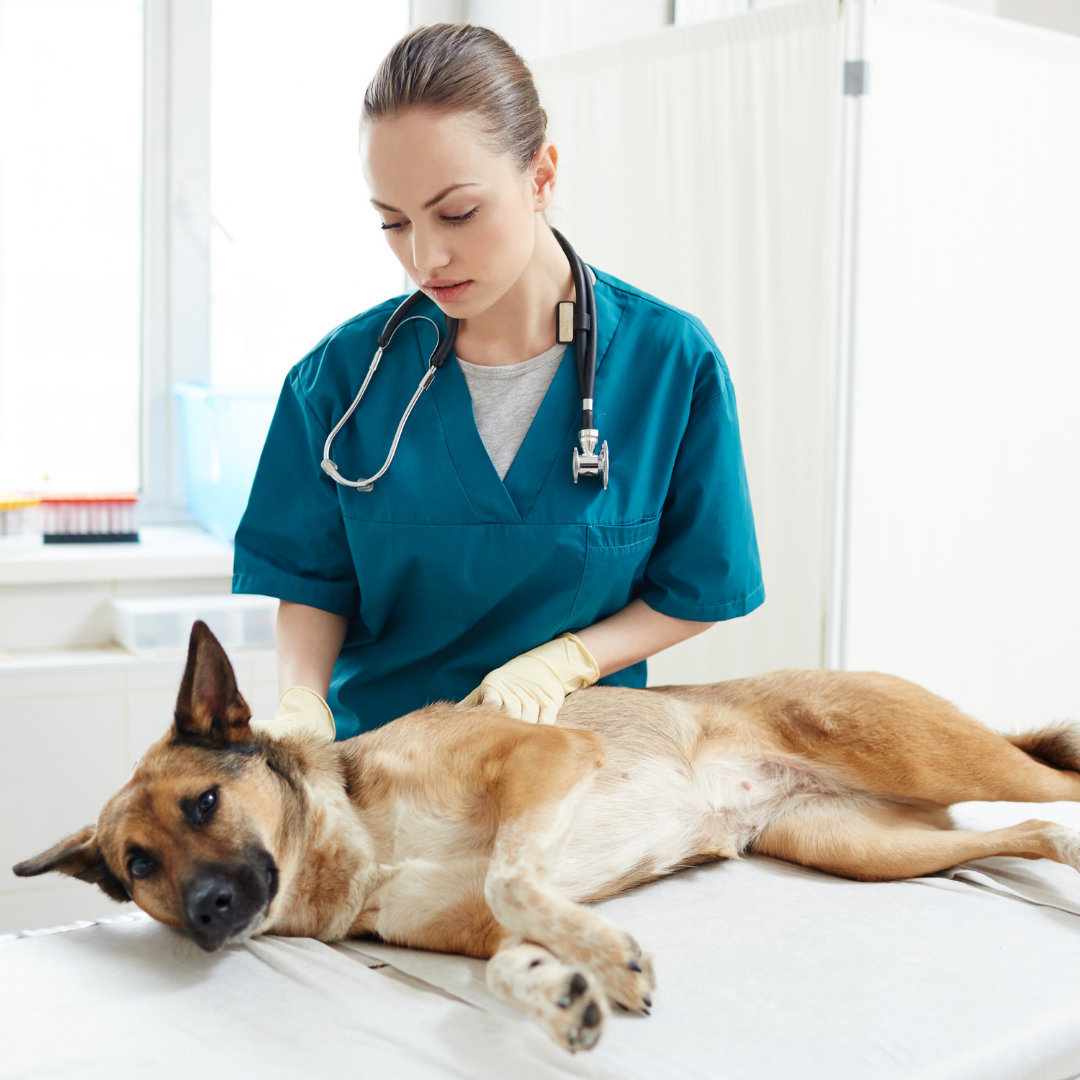March is National Pet Poison Prevention Month, and this week is Pet Poison Prevention Week. When it comes to your dog, there’s definitely information you need to know that could prevent them from getting sick, and even save their life.
Pet Poisons: What Is Toxicity For Dogs?
It happens to the best of us. We think we’ve got everything nice and pet-proof and before we know it? Our dog has snuck that Snickers bar right off the counter and all that’s left to tell the tale is the wrapper sticking out of their mouth.
We feel awful–our dog has just ingested a potentially harmful or even fatal poison. Would you know what to do? Or, would a pet-sitter know what to do if they were watching your dog? (Best to have that be one of the questions you ask potential pet sitters!)
Maybe a better question is “Do you even know what is poisonous for pets?”
It’s important you know the answer.
Poisonous For Dogs: What You Should Know
You probably know that chocolate is toxic for dogs. But did you know that bakers’ chocolate or dark chocolate is worse, though? Though it’s not typically fatal to dogs (many think it is), chocolate ingestion can be serious. It contains caffeine, as well as theobromine, which is a toxin that is similar to caffeine. They’re used as diuretics or heart stimulants, and the truth is that your dog just can’t metabolize theobromine and caffeine as humans can. This leaves him more sensitive to their effects and more susceptible to feeling super sick. Dark chocolate has more theobromine than milk, and that’s why dark is worse for them.
But far more dangerous and much deadlier is Xylitol. Xylitol is used more and more in sugarless candies, gums and products. It’s even used in medicines and toothpastes, and it can kill your dog very quickly. If your dog ingests something with Xylitol, it can cause dangerously low blood sugar (hypoglycemia), seizures, liver failure or even death!
If you think your dog has ingested something with Xylitol, get them to the vet IMMEDIATELY. It is truly a matter of life or death.
Plants That Pose a Risk To Dogs
Our gardens and homes often host a variety of plants, which add beauty and life to our spaces but can be dangerous for our best friends. Lilies, for example, are highly toxic to dogs and can cause gastrointestinal upset, heart arrhythmia, or kidney failure. Sago palms, with their spiky fronds, are not just a choking hazard but also contain compounds that can cause vomiting, diarrhea, and even liver failure. Tulips, particularly their bulbs, contain allergenic lactones and alkaloids that can irritate your dog’s mouth and esophagus, leading to drooling, nausea, and even difficulty breathing.
Medications to Secure
Both over-the-counter and prescription medications can be toxic to our pets. Drugs like ibuprofen and acetaminophen, staples in our medicine cabinets for treating pain and fever in humans, can be deadly to dogs, causing gastrointestinal ulcers, kidney damage, or liver failure. Antidepressants, too, pose a risk, potentially leading to a range of symptoms from lethargy to seizures. Always keep medications out of reach and consult your vet before giving your dog any medicine.
Household Chemicals to Guard Against
Chemicals around our homes can be deadly to dogs. Cleaners, while keeping our spaces sparkling, can be harmful if ingested or even inhaled by dogs, leading to respiratory or gastrointestinal distress. Antifreeze, with its sweet taste, can be enticing to dogs but is deadly if ingested, causing kidney failure. Rodenticides and insecticides, used to keep pests at bay, can cause a range of symptoms from mild to severe, including internal bleeding, seizures, and even death, depending on the type and amount ingested.
The Pet Poison Helpline has tons of information about pet poisons, including different Top 10 poison lists for different seasons.
What should you do if your dog ingests poison?
If you know or think your dog has been exposed to a poison or toxic substance, you have to act fast. Knowing what to do ahead of time could be a lifesaver.
You’ll first want to be sure they were indeed exposed to or ingested the toxin. Take note of what the exposure was. Was it eaten or did they sniff it or did their skin absorb it? If it was a food, do you know where the food came from? Was it a toxic animal (like a toad) or a toxic plant (like poinsettia) or a toxic chemical (like toilet bowl cleaner)? Knowing what your dog’s poison exposure was, and how much of it they had is key for your vet. If you can get the packaging (if applicable) for the poison, take it with you to the vet.
And yes. GO TO THE VET. Call them on the way. Don’t wait to see if your dog shows signs of sickness. It could simply be too late by then. It’s always better to be safe than sorry, and your vet is THE FIRST CONTACT you want to make. The second immediate call should be Pet Poison Control, as they’ll likely need to give your vet a case number to work with their toxicologists. 
DON’T give your dog anything to ‘remedy’ the situation without your vet telling you to do so. This includes making them vomit.
Yes, sometimes your vet may tell you to give them salt or even hydrogen peroxide to induce vomiting but DO NOT DO IT WITHOUT them telling you to do so. Sometimes inducing vomiting can just make the toxin spread more quickly in your dog’s system, so always follow THEIR directions. That said, it’s never a bad idea to have an unopened bottle of hydrogen peroxide that hasn’t expired just in case.
If your dog was exposed to something toxic on his fur or skin, the vet may also advise you to bathe them quickly first. Try having Dawn dish soap around just in case this ever happens, as it’s one of the best grease-cutters and maybe the best defense in fending against skin toxicity.
Most importantly, be prepared. You never know when something is going to happen, so you want to be sure you’re ready. You can contact the ASPCA Poison Control Line at 888-426-4435 or Pet Poison Helpline at 800-213-6680.
Additionally, keep your dog’s medical records up-to-date and easy to get to in case you have to rush to a different clinic that can handle emergencies.
As much as we want to protect our dogs, the truth is sometimes they get into things they just shouldn’t get into. That’s why we want always to do our best to keep things as safe as we can, and to keep them as healthy as we can too. Knowing how to protect them, and what to do if there is a toxicity emergency can truly save their lives.



